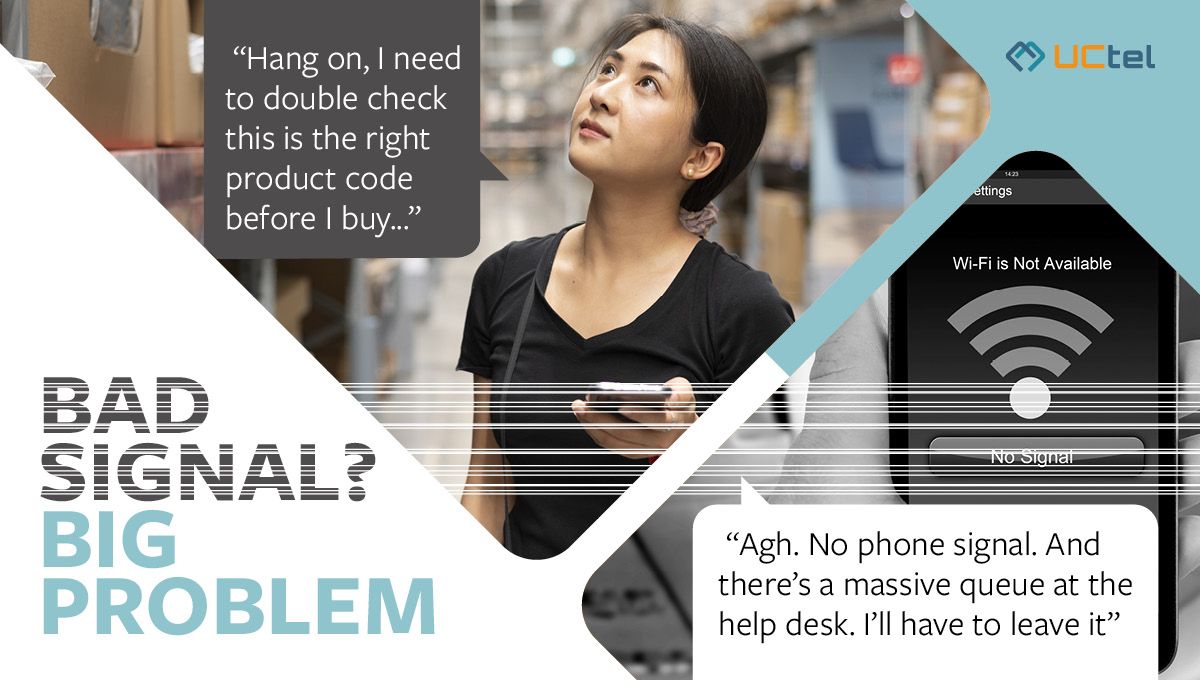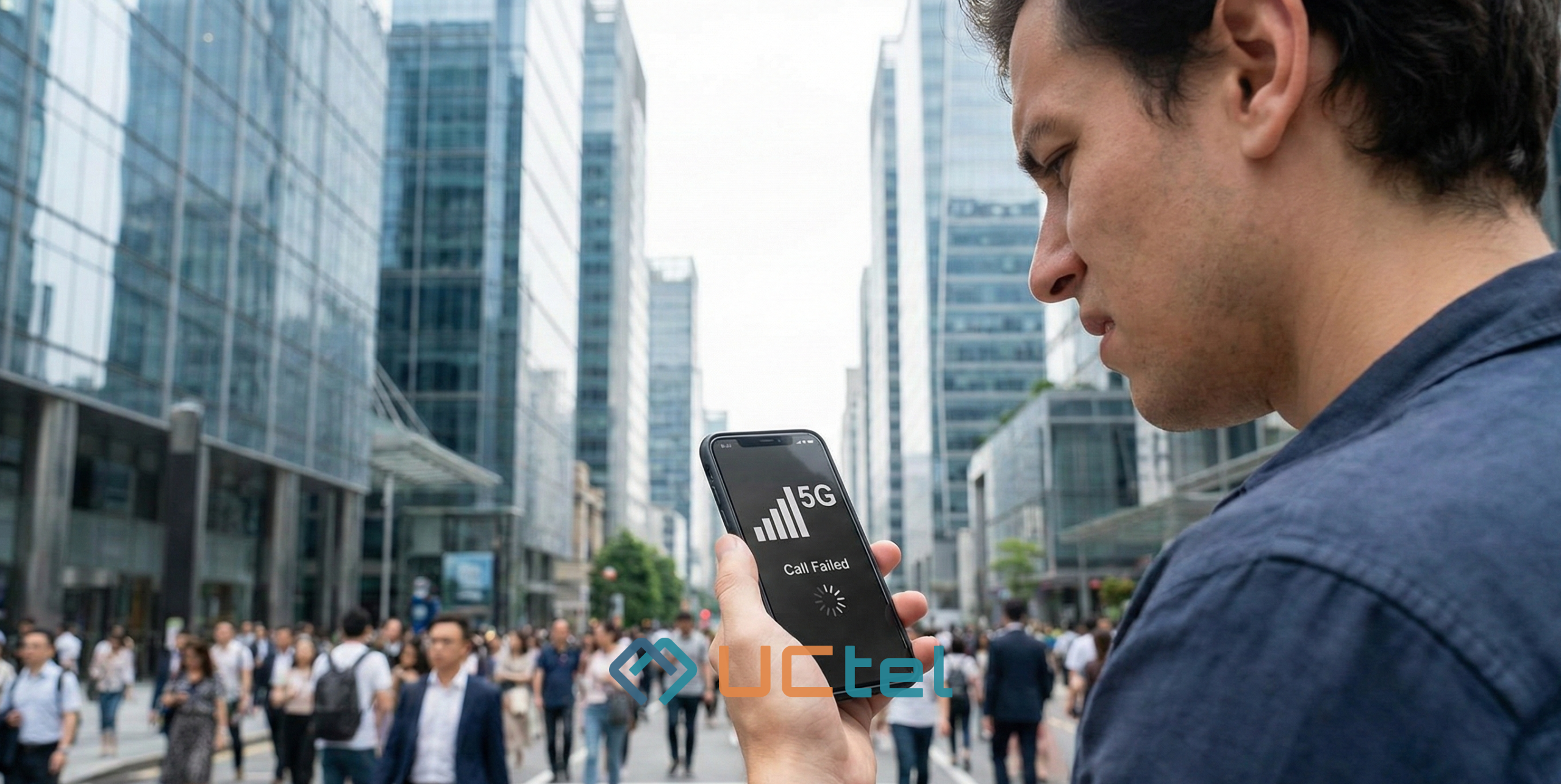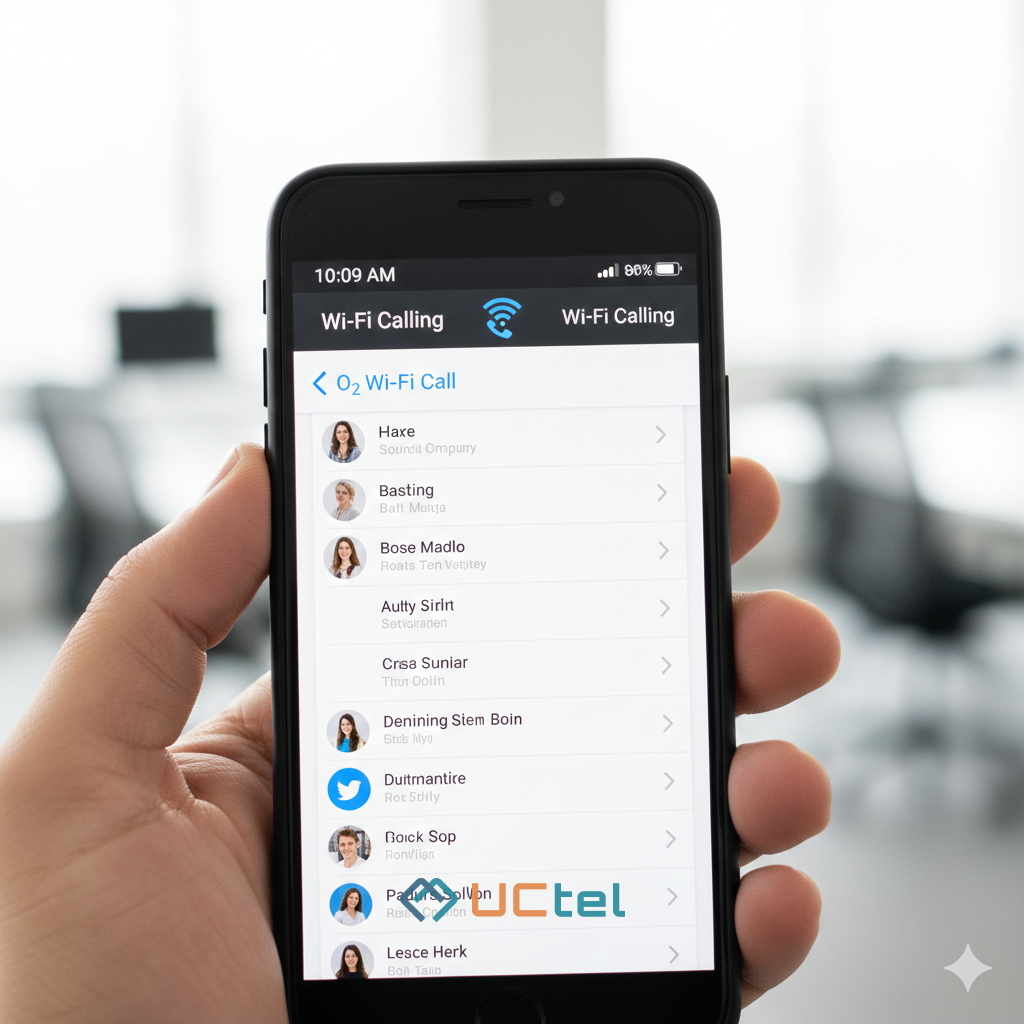
How to Boost Mobile Signal in Your Office and Get Rid of Dead Zones?
Table of contents
One in two people has to step outside a commercial building to resolve poor mobile coverage, while 30% often stand in a well-known coverage spot to boost the signal. The result? Low employee satisfaction, poor brand reputation, and an inconvenient effect on the workforce and sales. Add to it that one in four workers are moving jobs due to poor connectivity, followed by 25% of people leaving a shop for the same reason.
These statistics only highlight the worrying extent of the UK’s struggle for adequate indoor coverage and its potential impact on businesses in the future. Therefore, the questions arise — what causes such signal issues, and how to boost a mobile signal in the office most effectively ? Here’s the information you should know.
How Does Poor Signal Affect Business?
Poor mobile coverage in commercial buildings is jeopardising business, causing companies to lose staff and consumers. Whether it’s in a supermarket, office block, or manufacturing unit, bad signal is a big problem. Why? Because it seriously threatens productivity, revenue, reputation, and customer satisfaction for organisations of all kinds. Let's see how some of them suffer from the lack of quality connection in detail.
Supermarkets
Low mobile performance is one of the biggest frustrations for shoppers who now rely on smartphones and expect reliable connection in a store. With 37% of people using phones to compare prices online, 23% asking friends for advice via messages, and a surge in customers relying on scan-and-go, it’s clear that good coverage is vital for a better customer experience. This, consequently, impacts customer retention and sales.
Office blocks
Around two-thirds of mobile usage in the UK happens indoors, and if employees are unavailable, it’s bad for business. Still, over 39% of managers responsible for IT decisions have issues with poor signal quality or capacity in their premises. And with the need to make calls and access emails, websites, and company applications on the same device, UK offices need 3G and 4G coverage more than ever.
If you own an office building, having a strong mobile signal is also something to think about. If your establishment offers a strong mobile signal, you can quickly attract and retain office tenants, as they won’t leave in search of a place with a better connection.
Manufacturers and distributors
In manufacturing environments and warehouses, mobile and data reception allows staff to connect with co-workers and field agents. However, concrete walls, steel beams, and expansive square footage can result in a lack of connectivity, adversely affecting communication between vital staff members, resulting in expensive mistakes and serious operational challenges.
Luckily, there is a solution to improve a mobile signal in the office or a different commercial space, which doesn’t require you to tear down the walls or move to another location.
What Causes Poor Signals in Commercial Buildings?
Before we discuss how to increase a mobile phone signal inside a building, it’s important to know what causes such issues because you may have a mobile tower nearby yet still have significant mobile signal problems inside a building. The reason is that building materials greatly affect mobile coverage, with some being more disruptive than others.
The phone signal quality is measured in decibel milliwatts (dBm). Signal strength varies depending on the weather, where you are standing, whether a tower is nearby, etc. The range of a phone signal is from -50 dBm (refers to a perfect signal) to -120 dBm (a dead zone or extremely poor signal).
The building materials impact a mobile signal differently, and metal has the most negative impact. It is widely used in factories and can subtract from -32 to -50 dBm from a signal you get outside. If you have the perfect -50 or -60 dBm outside the building, you may get from -82 dBm to -110 dBm inside if metal is used in the construction. -110 dBm is so close to the dead zone that you may be unable to talk to someone or use mobile Internet. The situation worsens if your signal outside is not the ideal -50 or -60 dBm, which is often the case.
But metal isn't the only material that causes such problems. Other materials that significantly worsen mobile signal are tinted or low-energy glass, concrete, and brick. Such materials are actively used in offices, warehouses, and other commercial buildings, so, unsurprisingly, these spaces usually have connection issues.
| Materials | Signal loss (measured in dBm) |
| Fibreglass insulation and drywall | -2 |
| Regular clear glass | -4 |
| Plywood | -4 to -6 (up to -20 if plywood is wet) |
| Wood | -5 to -12 |
| Plaster | -8 to -16 |
| Brick | -8 to -28 |
| Concrete | -10 to -20 |
| Low-energy or tinted glass | -24 to -40 |
| Metal | -32 to -50 |
While it’s not always possible or necessary to rebuild an entire facility, there are some things you can do to significantly improve mobile coverage inside an office building.
How to Improve Mobile Signal in Office?
Wondering how to get better mobile service in a building? You are certainly not alone in this, as more than 1.5 million companies in the UK believe that poor mobile coverage lessens their ability to do business. The majority of companies currently use mobile technologies to sell and promote their products, which means they require a stable mobile signal that can be accessed from their premises.
One of the most effective solutions to instantly boost mobile signal is using a CEL-FI booster. Business owners unfamiliar with such technologies for improving cellular signals may wonder — are such solutions legal? Is it expensive to install them? Let’s answer those questions to cast away your worries.
Barrier one: Are mobile signal boosters legal in the UK?
In short, CEL-FI is legal, yes. In April 2018, UK regulator Ofcom confirmed the making of regulations to allow people to use certain types of mobile phone repeaters without a licence, known as the Wireless Telegraphy (Mobile Repeater) Regulations 2018. This allows static indoor repeaters and low-gain amplifiers for use in a vehicle, which must adhere to technical standards. While ‘wideband’ repeaters remain illegal unless licenced.
Barrier two: Are they complicated to install?
Subject to the place of business, a mobile signal booster isn’t complicated to install. With CEL-FI being the only signal booster authorised for use in nearly 100 countries by almost 200 mobile network operators, all that’s required is a single bar of coverage. The antenna or unit is then installed where the mobile phone network is at its best. Designed for spaces ranging from mobile to enterprise, CEL-FI achieves optimal voice quality and data speeds with an exceptional coverage footprint.
Barrier three: Isn’t it expensive?
One of the first things companies and business owners get questions about when deciding to improve a mobile signal in commercial property is the cost. Again, this is determined by your building size, structure, and extent of present coverage. CEL-FI delivers the lowest cost per decibel of gain and square footage of coverage, offering outstanding value and performance. But if you have no signal, there are other options, with costs varying depending on the building size.
With over 32% of businesses in the UK actively paying to improve their mobile coverage and only 17% experiencing full bar coverage, something needs to shift. So, the real question is: can you afford to continue working and trading at your best with poor connectivity?
At UCtel, we’ve helped clients in all industries find a permanent, flexible solution to their signal problems, bringing better call quality and data speeds to buildings across the UK. We know how to improve mobile signals in an office building affordably and with zero effort on your part. Our company has extensive experience in the field to pick the right solution for your space that will take your mobile signal from a dead zone to perfect coverage.
If you know you have an in-building signal issue but aren’t sure how to fix it, take a look at our flow chart to find the answer to better mobile coverage in any building. OR, get in touch with us at sales@uctel.co.uk, and we’ll talk you through the options that are right for you.






